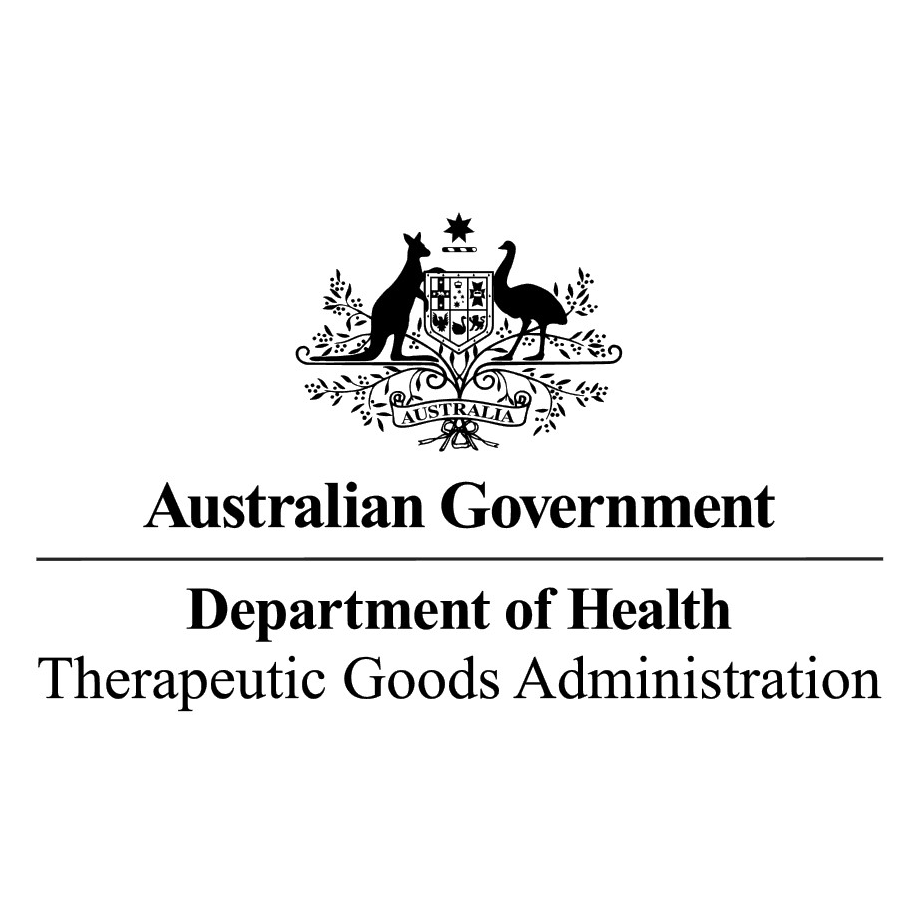Why Pharmacogenomics?
The Lancet in 2023, found that using pharmacogenomics to guide prescribing reduced clinically relevant adverse drug reactions by 30% when compared to a group of patients receiving standard, non-genomics-guided treatment.1
The myDNA test can help reduce trial and error when prescribing and ensure that the patients are on the most suitable medication from the beginning 2.
The myDNA test is a multigene pharmacogenomic test that identifies variations in a number of genes affecting the metabolism of 100+ commonly prescribed medications.
What is Pharmacogenomics?
Pharmacogenomics (PGx) is the study of how genetic variations influence the way an individual responds to medications. PGx enables doctors to test for specific genetic changes to predict whether a patient may have a normal response, a poor response or a higher risk of side effects, before prescribing a specific medication
Evidence behind pharmacogenomic testing
Pharmacogenomic Testing is supported by national and International guidelines. Our reports are based, on the Clinical Pharmacogenetics Implementation Consortium (CPIC) and the Royal Dutch Pharmacists Association – Pharmacogenetics Working Group (DPWG) . These guidelines are routinely updated, peer-reviewed, and published in relevant journals.
The Royal College of Pathologist of Australia (RCPA), in collaboration with other professional bodies, has developed indications for PGx Testing to support clinicians with safer and more effective prescribing.
- The Lancet in 2023, found that using pharmacogenomics to guide prescribing reduced clinically relevant adverse drug reactions by 30%1
- A recent meta-analysis reviewed 13 Randomised Controlled Trials (RCTs) and showed that patients prescribed medications with PGx guidance were 1.41 times more likely to achieve symptom remission in major depression vs those with unguided therapy https://pubmed.ncbi.nlm.nih.gov/36111494/
Who may benefit from
PGx Testing
The myDNA Multiple Category PGx Medication test is beneficial for any patient initiating medications in areas of cardiology, gastroenterology, pain management, and psychiatry. This test can provide clinically actionable gene-drug interactions.
Particularly advantageous for patients experiencing adverse effects or poor responses to specific medications.
PGx results are relevant throughout a patient’s lifetime and may apply to future prescriptions.
Genes
Covered
The myDNA PGx panel is comprised of 11 genes that are relevant across various therapeutic areas including cardiology, gastroenterology, pain management, and psychiatry.
CYP2D6, CYP2C19, CYP2C9, CYP1A2, CYP3A4, CYP3A5, VKORC1, ABCG2, CYP2B6, OPRM1, SLCO1B1
Test Available
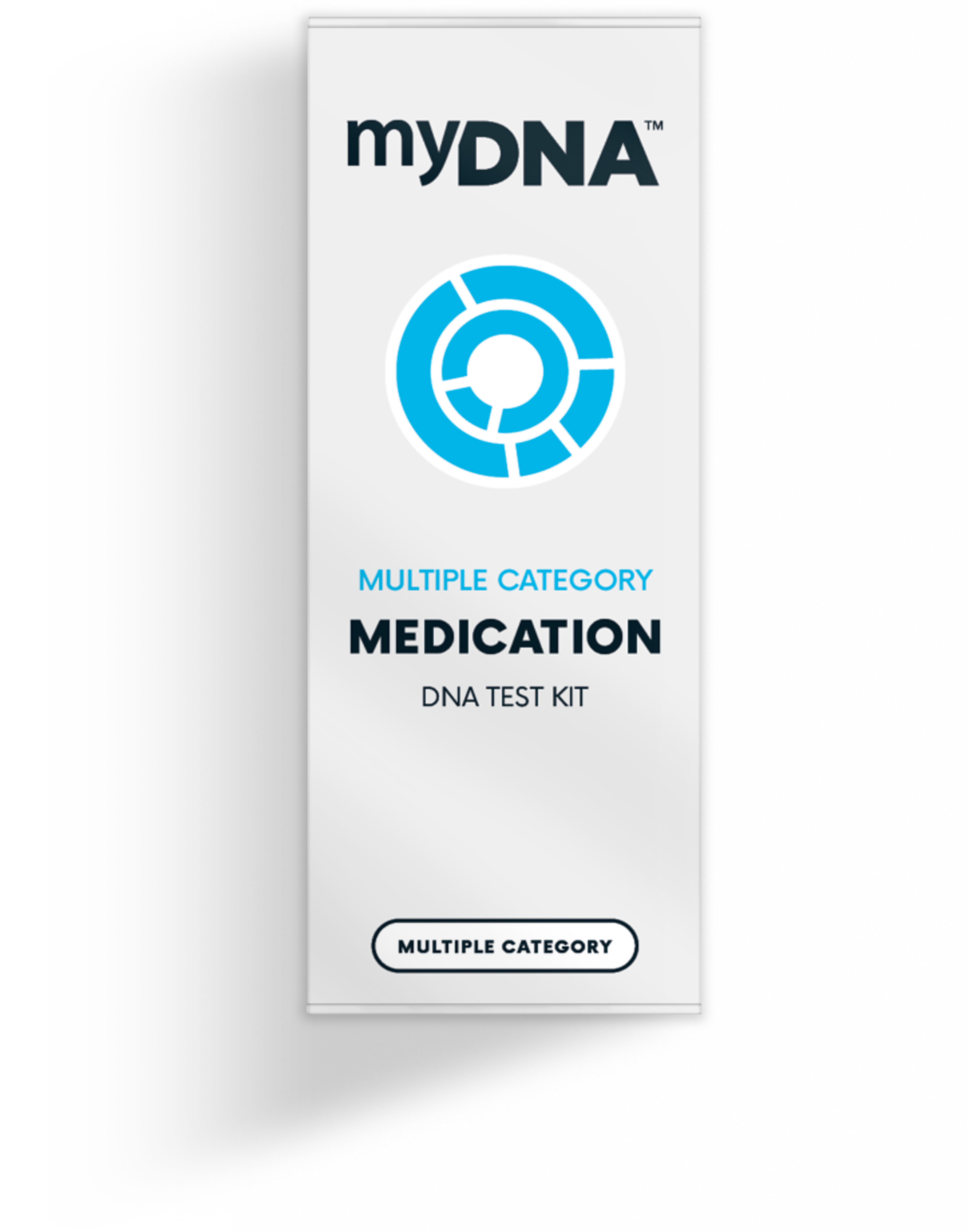
Multiple Category Medication Test Kit

Covers multiple medication categories, including: psychiatry, pain, gastrointestinal, cardiovascular medications + more.
$198.00
Ordering the test
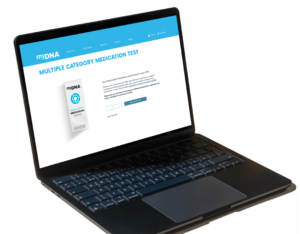
02 Register
Your patient will register their kit and nominate you as their doctor. Patient will complete the simple cheek swab and send it back to the myDNA Lab.
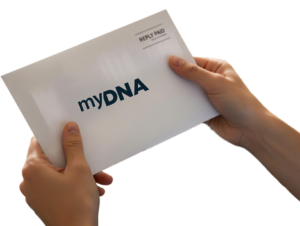
03 Results
The results will be sent to your practice once they are ready. Your patient will book a consultation to discuss their results.
Please note: Inform your patient that results will not be released until the consultation with their healthcare practitioner has been undertaken.

Medibank members with Mental Health Support included on their cover may be eligible for a rebate towards pharmacogenetic testing for all conditions.
To find out more on how to claim, please visit How to claim – Pharmacogenetic testing.
Turnaround Time:
Our Melbourne-based NATA accredited laboratory provides results within 7-10 working days from sample receipt.
Result Delivery Method:
Results are securely delivered through a portal or via encrypted email for immediate access.
Clinical Support
The myDNA Clinical team consists of qualified clinical geneticists, pharmacists and pharmacologists who are available to discuss specific patient results.
Simply call us on 1300 436 373 or email us on clinical@mydna.life.
Benefits of the myDNA Pharmacogenomics Report
The myDNA report is easy to use with a simple traffic light system, providing clear actions for recommended medications and dosage.
Our testing is done in our Australian Lab, providing fast turnaround times so practitioners are provided with a report within 7 – 10 days of the sample being received.
myDNA provides support through our dedicated clinical team to support complex cases and report interpretation.
The myDNA Multiple Category Medications Report
The myDNA PGx Medication report details the patient’s unique pharmacogenomic results, offering specific interpretation and prescribing considerations relating to medication and dosage selection that are informed by current evidence-based guidelines established by expert Consortia such as The Clinical Pharmacogenetics Implementation Consortium (CPIC) and The Dutch Pharmacogenetics Working Group (DPWG) as well as regulatory bodies including the TGA and FDA.
Printable Resources
To support the conversation with your patient we have a Doctor’s Overview, Patient Information and a Substrate Card covering all the medications that we provide results for. These documents can be used for your reference.
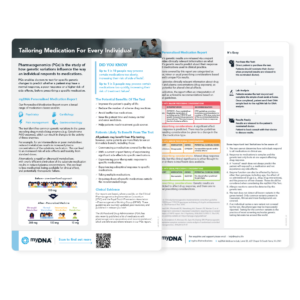
Doctor’s Overview
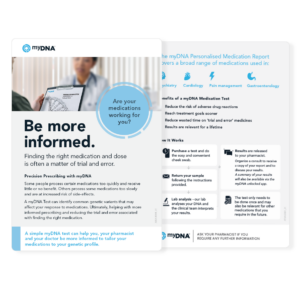
Patient Education
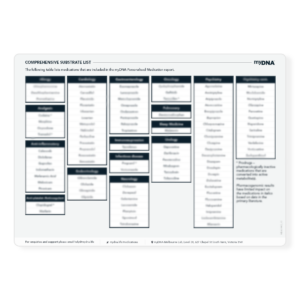
Substrate Card
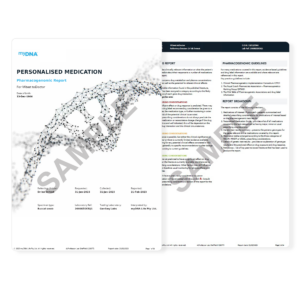
Request Sample Report
Please contact our customer service team for access to our training resources.
Our pathology partners
The myDNA Test is available through a blood test with the following pathology providers.

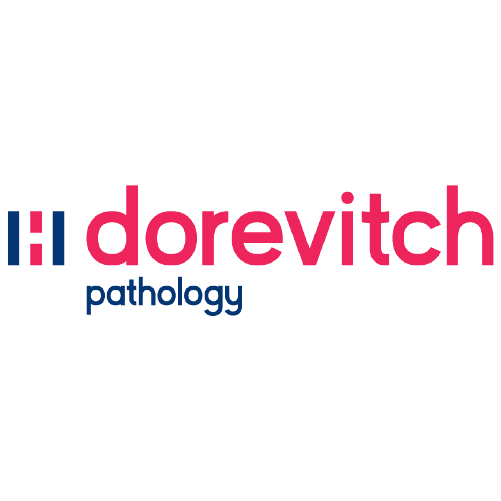
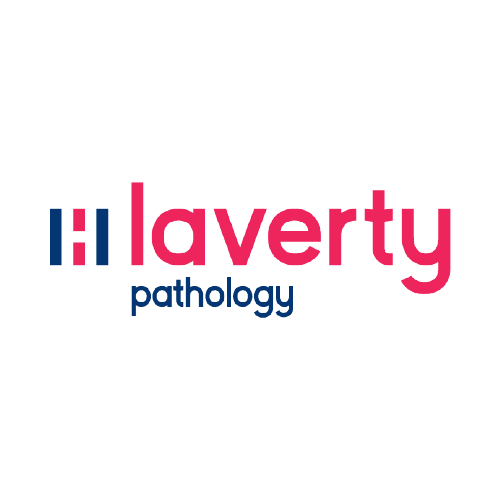
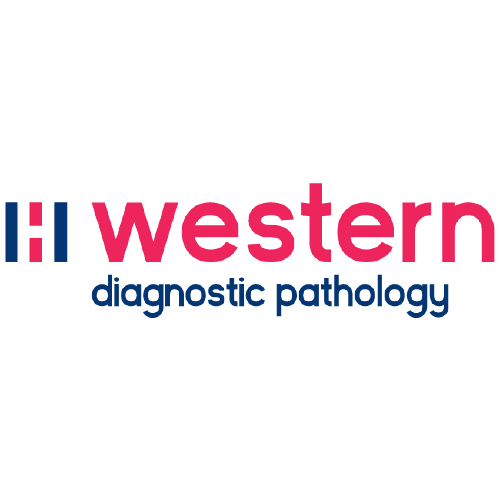
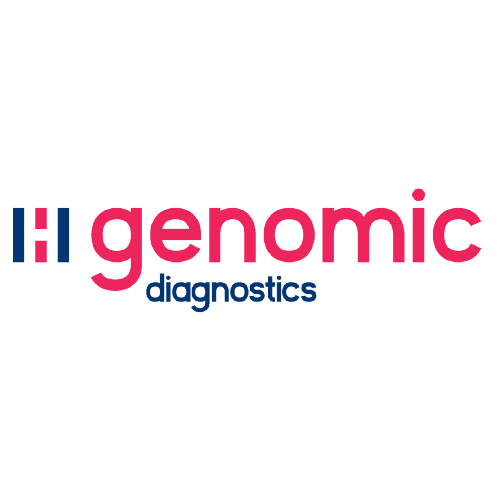

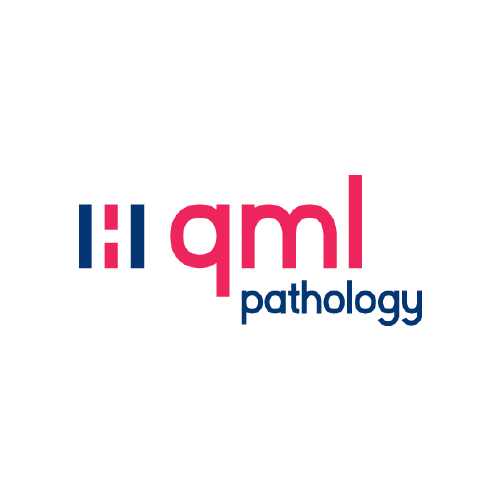
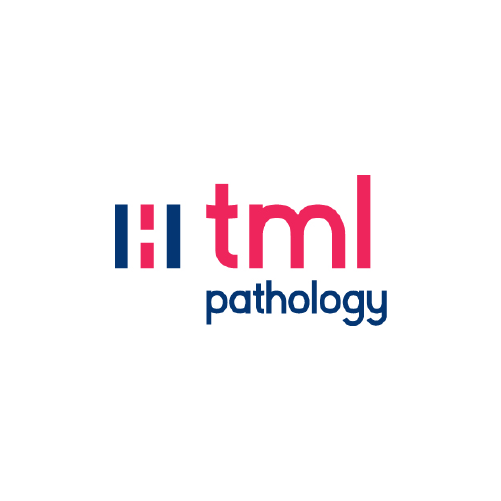
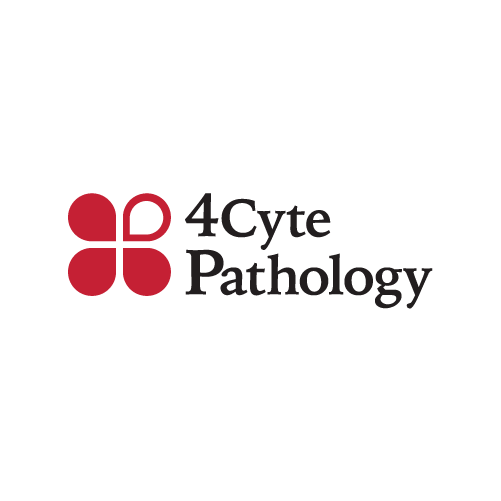

Trusted Australian accreditation
Patient Privacy and Security
All DNA remains the property of the patient. DNA samples are de-identified upon arrival at our laboratory to ensure all DNA remains anonymous, and our DNA analysis technique cannot be used to identify individuals or their relatives. myDNA will never share any patient data with third parties without written consent and uses secure encrypted servers to protect it.
References
- Swen, J. J., van der Wouden, C. H., Manson, L. E., Abdullah-Koolmees, H., Blagec, K., Blagus, T., … & Rodríguez-González, C. J. (2023). A 12-gene pharmacogenetic panel to prevent adverse drug reactions: an open-label, multicentre, controlled, cluster-randomised crossover implementation study. The Lancet, 401(10374), 347-356.
2. Dinama O, Warren AM, Kulkarni J. The role of pharmacogenomics in psychiatry: Real world examples. Aust NZ J Psychiat 2014.48(8)778-781


